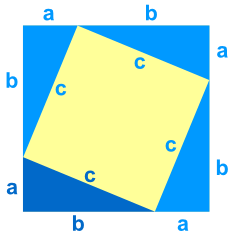There’s a small cadre of writers plugging away in the dank belly of the indy scene that are well worth a look. Schantz’ Hidden Truth series of conspiraciana led me to Neovictorian’s Sanity, an excellent spy thriller, which introduced me to the civilizational collapse tales of Abraham Lopez’ Going Gone. All of these great works are related – their authors talk and share ideas online – and it has been a pleasure to expand my own reading circle outwards to find such a valuable pool of thinkers and readers.
And then came Sanction: The Book.
Our postmodern world denies the dual nature of Man as both beast and intellect. This denial grows steadily worse into the near future, where politics are even more polarized than today, and the primal nature of Man is forcibly constrained by naive and reckless policymakers.
Roman McClay’s book has been getting a lot of positive word of mouth from people that are smarter than me. They claim it is a deeply though provoking book filled with profound insights into the nature of man and that delicate balance between civilization and barbarism along which we all tiptoe. And maybe it is, but the nearly 800 page length spooked me into checking the free preview before diving headlong into the work.
And what I saw put me off the rest of it. It’s a rambling mess of observations and insights and backwoods philosophy. Every time the narrative approaches something cogent, it retreats back into more discursions and tangents that never quite gel into something more than a Thomas Pynchon mess of cross-referentialism. It reads as profound and insightful, but once you come up for air, you’re left with a feeling that there isn’t any there there. All it evoked in me was the same feeling I got listening to Jordan Peterson answer a direct question – a lot of preamble and thoughtful connections between unrelated topics that provides a lot of “I know that reference” responses without actually answering the question.
The Amazon reviews sing the book’s praises with the sort of self-congratulatory praise that lets you know the reviewer is one of the elect – the few, the proud, the elite intellects capable of appreciating the mysterious beauty of the long winded passages and oblique references. They sound a lot like NYC hipsters talking about paint spatters as a majestic insight into anything other than the lengths the CIA’s handlers would go to in order to siphon money away from true artists and towards well connected drug-addicts.
Maybe it’s me. I don’t have time to read and reread and ponder and puzzle and pore over a book to deduce its hidden and secret meaning only fit for the rugged thinkers of the modern day return to barbarism movement.

 Which way now, philosopher kangz?
Which way now, philosopher kangz?
Maybe the insights this novel provides are buried too deep for my smooth brain to tease them out, but the practical side of me wonders: if the ideas are so smart, why do they have to be hidden and buried beneath so many layers of obfuscation? That might sound simplistic, but the mathematician in me sees beauty in simplicity. I’ll take the use of the Pythagorean theorem over a proof to the Guassian Correlation Inequality any day of the week. The former is easier to digest and more applicable to daily life than the latter. In much the same way, Frodo’s simple point A to point B quest and journey through misery in service to others provides way more insight to the human condition than a hot mess like Finnegan’s Wake.
You might like Santion. Maybe you don’t have kids. Maybe you’ve got a surfeit of time on your hands and a comfortable fireplace to set next to and delve deep into mysteries best left untouched by the hand of a surgical butcher-cum-editor. Maybe you’re smarter than me, and you’d love this book. And that’s why I’m talking about it. It ain’t for me, but clearly it’s for somebody, and maybe that somebody is you.
I wish you the best of luck on your journey. I’ll just be over here licking windows and reading Chesterton quotes on Twitter.

